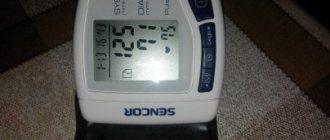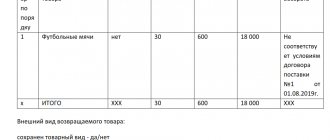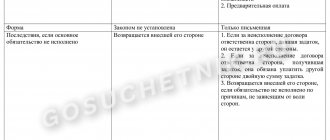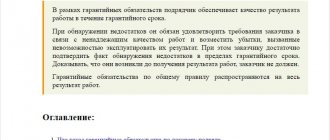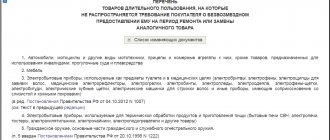Despite its status as the shortest month of the year, February turned out to be quite eventful in events in the legislative sphere. Thus, the Ministry of Industry and Trade proposed to begin an experiment on labeling dietary supplements this year, and the Ministry of Health again extended the validity of accreditation certificates. In addition, Rospotrebnadzor commented on the situation with the return of medicines that arose with the abolition of the old Rules for the sale of certain types of goods. This and other things will be discussed in more detail in our traditional review of pharmaceutical legislation.
Returning drugs to a pharmacy
At the end of February, Rospotrebnadzor gave an answer to the main question that arose with the adoption of the new Government Resolution No. 2463 of December 31, 2020 - is it possible to return the medicine to the pharmacy?
Let us recall that in the previous Rules for the sale of certain types of goods, medicines were included in the list of goods that are not subject to exchange or return. In the new document, the list was renamed “list of goods not subject to exchange.” Thus, the question arose - it is impossible to exchange, but what about the return of medicines?
Rospotrebnadzor explained that the “return” of a product, according to Article 25 of the Law of 02/07/1992 No. 2300-1 “On the Protection of Consumer Rights”, is its “exchange” for money if a similar product is not available. And since drugs are included in the list of goods that cannot be exchanged, no return can be made.
A refund
- In case of cancellation of the Order or Product after its receipt, the Seller returns the funds to the Client. The method of refund is determined depending on the method that was used to pay for the Goods:
- When paying in cash upon receipt - in cash at the Seller's cash desk.
- when paying with a Bank card (or Apple Pay / Google Pay / Samsung Pay) - to the Bank card (or Apple Pay / Google Pay / Samsung Pay) from which the payment was made.
- In case of cancellation of the Order or Product before its receipt, the prepaid funds are returned to the card from which the payment was made.
Labeling of dietary supplements
At the very beginning of the month, the Ministry of Industry and Trade published a draft resolution on the start, from April 1, 2021, of an experiment on labeling biological active food additives with identification means, similar to medicines.
The experiment is planned to be carried out for 10 months - from April 1, 2021 to February 1, 2022. Let us remember that the pilot project on drug labeling took more than three years. At the same time, initially the experiment was supposed to end in 2021, but was later postponed to 2021.
For a detailed analysis of the draft resolution on the labeling of dietary supplements, as well as the market’s readiness for it, read our separate article.
Actions in case of refusal
If you cannot resolve the issue of returning a rejected product immediately when contacting a pharmacy and you are refused, you need to proceed as follows:
- If the pharmacy seller is not competent in resolving this issue, then you need to contact the head of the pharmacy. You can also make an entry in the book of complaints and suggestions indicating your data and describing the entire situation.
- If the specified period has expired and there is no response, you must contact Rospotrebnadzor or the Ministry of Health with a statement of claim (Details of the application are given below).
- To carry out the examination, it is necessary to prepare an application in two copies addressed to the pharmacist who sold the product or the manufacturer of the product being returned. One copy must remain with the plaintiff, the second is transferred directly to the seller or sent to him via mail with official delivery with notification.
- When transferring a medicine for research, the pharmacy staff must issue a receipt confirming its withdrawal.
The application must contain all the information that will be needed when considering your claim, including a description of the defects of the purchased drug, details of its purchase, as well as the name, address and telephone number of the seller of the product and the buyer. A statement is written addressed to the pharmacy management. It should state the nature of your requirements. If there is a sales receipt, a copy of it must be attached to the application. At the end of the application, you need to list the copies of documents attached to it and sign it with the applicant’s full name and date.
For your information
Returning a product to a pharmacy that does not have any defects is difficult for legal reasons, but it is quite possible. To do this, you need, first of all, to try to negotiate with the pharmacist who sold the product. If he does not meet you halfway and refuses to return the medicine, you need to write a claim in the complaint book with a detailed description of the situation and indicating your contact information. If there is no response within 5 days, you have the right to file an application with higher authorities and the court. The application must be accompanied by copies of documents confirming the purchase of the drug (receipt, testimony of two witnesses, instructions for using the drug, its photo, as well as a written refusal from the pharmacy, certified by the signature of the manager).
Fines for marking
And continuing the topic of labeling - new fines for violating the rules of working with GIS MDLP, adopted by State Duma deputies in the first reading. The document proposes to add two new articles to the Code of Administrative Offenses - for the introduction and circulation of unlabeled drugs, as well as for failure to provide mandatory information about labeled goods to the system.
The punishment for such offenses will be a fine of 5 to 10 thousand rubles for officials and from 50 to 100 thousand rubles for legal entities.
Thus, in addition to the already existing Article 6.34 “Untimely entry of data into the system for monitoring the movement of medicinal products for medical use or entry of false data into it,” liability will be introduced for intentional failure to provide information to the labeling system, as well as for the circulation of drugs without labeling.
Procedure in case of violation by the Seller of the terms of quantity
- Unless otherwise provided by these Terms, when transferring the Order, the Client is obliged to check the quantity of Goods in the Order. If, when transferring the Order by the Client, discrepancies are detected in the quantity of Goods in the Order, the Client is obliged to immediately inform the Seller’s Customer Service about this by calling 216-16-16, or through the feedback form.
- If the Seller has transferred to the Client a smaller quantity of Goods than determined by the Order (under-delivery), the Client, when transferring the Order, has the right to accept the Goods in the part corresponding to the Order and demand to transfer the missing quantity of Goods, or, if the missing Goods have been paid for, refuse the Order in part of the missing Goods and demand a refund for the missing Product.
- If it is impossible to transfer the missing Product, the Seller notifies the Client by sending a message to the email address specified by the Client during registration, or by telephone.
- If the Client violates clause 1 regarding informing the Seller, the Seller has the right to refuse to satisfy the Client's claims regarding the quantity of the transferred Goods.
The first candidates for inclusion in the VED list of 2022 have been named
In February, the first meeting of the Ministry of Health commission on the formation of drug lists finally took place. Based on its results, VED-2022 may include eight new positions:
| INN | Dosage form | Pharmacological group |
| 4-nitro-N-[(1RS)-1-(4-fluorophenyl)-2-(1-ethylpiperidin-4-yl)ethyl]benzamide hydrochloride | Concentrate for the preparation of solution for intravenous administration | Drugs for the treatment of heart disease |
| Gadoteric acid | Solution for intravenous administration | Contrast media |
| Delamanid | Film-coated tablets | Drugs active against mycobacteria |
| Bulevirtide | Lyophilisate for the preparation of solution for subcutaneous administration | Systemic antiviral drugs |
| Polymyxin B | Powder for solution for injection | Systemic antibacterial drugs |
| Alpelisib | Film-coated tablets | Antitumor drugs |
| Talazoparib | Film-coated tablets | Antitumor drugs |
| Pomalidomide | Capsules | Immunosuppressants |
In addition, the commission voted to exclude the drug “meldonium” in the dosage form “capsule” from the VED.
Let us remind you that the commission will hold its meetings several times throughout the year, so we can safely say that this list is not final. Follow the updates in our “News” section so as not to miss information about what other drugs may be added to or left the VED this year.
List of medicines for deductible treatment (until 2021)
The list, approved by government decree No. 458 dated 04/08/2020, contains international non-proprietary names of medicines, the purchase of which, on the recommendation of a doctor, can count on a tax deduction. Moreover, each medicine may have many other synonymous names. The names of medications indicated in the list are contained in the state register, which the Ministry of Health is obliged to publish annually (see the regulation of the Ministry of Health dated December 1, 1998 No. 01/29-15). You can find out whether the medicine you are interested in is in the state register on the website grls.rosminzdrav.ru.
If a doctor prescribed medications that are not included in this list, the patient-taxpayer will not be able to count on receiving social benefits (for periods before 2021). This is clearly stated in the letter of the Federal Tax Service in Moscow dated June 1, 2010 No. 20-14/4/ [email protected] The register displays both prescription medications and those that can be purchased in over-the-counter departments.
Let's present this list in a slightly abbreviated form; At the same time, it contains all the names of drugs, only the forms of their release are not indicated:
1. Medicines used for anesthesia, as well as those that reduce the tone of skeletal muscles:
- medications used for anesthesia (injection powders hexobarbital and sodium thiopental, solutions for injections ketamine and sodium oxybate, gas in a can of dinitrogen oxide, diethyl ether in liquid form, solution for inhalation halothane);
- local anesthetic agents (injection solution of bupivacaine and lidocaine);
- drugs that reduce the tone of skeletal muscles (powder for injection, botulinum toxin; injection solution of atracurium besylate, albumin; vecuronium bromides, pipecuronium, suxamethonium).
2. Analgesics:
- narcotics (injection solutions and tablets morphine, piritramide, trimeperidine; injection solution fentanyl and a mixture of morphine + narcotine + papaverine + codeine + thebaine);
- non-narcotic and non-steroidal medications (tablets: aspirin, diclofenac sodium, lornoxicam, ibuprofen, tramadol, nalbuphine, ketoprofen, meloxicam);
- medicine for gout - allopurinol;
- other drugs in this group (penicillamine, colchicine).
3. Antiallergic (antihistamine) drugs: ketotifen, quifenadine, chloropyramine.
4. Medications that affect the central nervous system:
- against seizures (carbamazepine, phenytoin, valproic acid, clonazepam, phenobarbital, phenytoin, ethosuximide);
- for the treatment of Parkinson's disease (biperiden, trihexyphenidyl, levodopa + carbidopa, amantadine, levodopa + benserazide);
- medications for the treatment of psychotic diseases (haloperidol, clozapine, medazepam, perphenazine, thioproperazine, phenazepam, chlorpromazine, diazepam, levomepromazine, nitrazepam, pipothiazine, thioridazine, fluspirilene, chlorprothixene, zuclopenthixol, lorazepam, periciazine, sulpiride, trifluoperazine, flufen azine);
- antidepressants (amitriptyline, clomipramine, maprotiline, moclobemide, tianeptine, citalopram, imipramine, lithium carbonate, mianserine, sertraline, fluoxetine);
- medicine for sleep disorders - zolpidem;
- medication for multiple sclerosis (interferon beta and glatiramer acetate);
- anti-drug drugs (naltrexone and naloxone);
- anticholinesterase medications (neostigmine methyl sulfate, distigmine and pyridostigmine bromides);
- other drugs from this group (nimodipine, vinpocetine, hexobendine + etamivan + etophylline).
5. Anti-infective:
- antibiotics (azithromycin, ampicillin, vancomycin, doxycycline, clarithromycin, meropenem, norfloxacin, sulfacetamide, cephaperazone, ceftazidime, ciprofloxacin, amikacin, benzathine benzylpenicillin, gentamicin, imipenem, co-trimoxazole, mesalazine, pefloxacin, chloramphenicol, cefipime, ceftriaxone, erythromycin, amoxicillin + clavulanic acid, benzylpenicillin, josamycin, carbenicillin, lincomycin, mupirocide, spiramycin, cefaclor, cefotaxime, cefuroxime);
- medicines for the treatment of tuberculosis (isoniazid, prothionamide, streptomycin, lomefloxacin, rifabutin, ethambutol, pyrazinamide, rifampicin, ethionamide);
- medications for the treatment of viral infections (acyclovir, zidovudine, lamivudine, ganciclovir, indinavir, nevirapine, didanosine, efavirenz, stavudine);
- antifungal drugs (amphotericin B, itraconazole, amphotericin B + methylglucamine, clotrimazole, griseofulvin, terbinafine);
- medicines for the treatment of malaria and other antiprotozoal medications (hydroxychloroquine, chloroquine, metronidazole);
- other medications from this group - bifidumbacterin;
- means for vaccination: immunobiological preparations, AIDS diagnostic test;
6. Immunosuppressive and antitumor drugs:
- cytostatic medications (azathioprine, bleomycin, vincristine, hydroxycarbamide, daunorubicin, idarubicin, calcium folinate, clodronic acid, methotrexate, oxaliplatin, prospidium chloride, tretinoin, chlorambucil, cytarabine, aranose, busulfan, vinorelbine, dacarbazine, doxorubicin, irinotecan, carboplatin, chalk falan, mitoxantrone, paclitaxel, thioguanine, fludarabine, cyclophosphamide, epirubicin, asparaginase, vinblastine, gemcitabine, dactinomycin, docetaxel, ifosfamide, carmustine, mercaptopurine, mitomycin, procarbazine, thiotepa, fluorouracil, cisplatin, etoposide);
- antihormones and hormonal drugs (aminoglutethimide, goserelin, triptorelin, anastrozole, medroxyprogesterone, flutamide, ganirelix, tamoxifen, cetrorelix);
- drugs accompanying treatment (interferon alfa, ondansetrion, lenograstim, filgrastim, molgramostim);
7. Anti-osteoporosis drugs - stimulants (alendronic acid, calcitonin, alfacalcidol, calcium carbonate + ergocalciferol).
8. Medicines that affect the blood:
- anti-anemia agents (sucrose iron hydroxide complex, folic acid, iron sulfate, cyanocobalamin, iron sulfate + ascorbic acid, epoetin beta);
- medications that affect blood clotting (alpostadil, nadroparin calcium, streptokinase, enoxaparin sodium, alteplase, pentoxifylline, ticlopidine, sodium heparin, protamine sulfate, phenindione);
- plasma substitutes and solutions (amino acids for parenteral nutrition, dextrose, hemin, pentastarch);
- plasma medications (albumin, coagulation factors VIII and IX);
- lipid-lowering medications (phospholipids + pyridoxine + nicotinic acid + adenosine monophosphate, simvastatin).
9. Drugs that affect the cardiovascular system:
- antianginal drugs (isosorbide dinitrate and mononitrate, nitroglycerin);
- drugs that treat arrhythmia (allapinin, metoprolol, quinidine, amiodarone, procainamide, etacizin, atenolol, propafenone);
- drugs that lower blood pressure (azamethonium bromide, verapamil, nifedipine, amlodipine, doxazosin, propranolol, betaxolol, methyldopa, fosinopril);
- medications to treat heart failure (valsartan, captopril, enalapril, digoxin, quinapril, irbesartan, perindopril);
- anti-shock medications (dobutamine, phenylephrine, dopamine, ephedrine).
10. Diagnostic equipment:
- X-ray contrast agents (sodium amidotrizoate, gadopentetic acid, iopromide, barium sulfate + sodium citrate + sorbitol + antifomsilan + nipagin, galactose, gadodiamide, iohexol);
- fluorescent drugs (sodium fluorescein);
- radioisotope medications (albumin microspheres, pirfotech, technefor, bromezide, pentatech, technefit (for all - 99mTs), isotonic solution of strontium-89-chloride).
11. Antiseptics:
- antiseptic - iodine;
- disinfectants (hydrogen peroxide, ethanol, chlorhexidine).
12. Medicines for gastrointestinal diseases:
- antacid and antiulcer medications (omeprazole, famotidine, pirenzepine);
- antispasmodics (atropine, platyphylline, drotaverine);
- enzymes - paccreatin;
- medications for liver failure (lactulose, artichoke leaf extract);
- antienzyme agent - aprotinin.
13. Hormonal drugs:
- antihormones and hormones that do not affect the reproductive system (betamethasone, human chorionic gonadotropin, desmopressin, levothyroxine sodium, lutropin alfa, nandrolone, somatropin, triamcinolone, follitropin beta, bromocriptine, deoxycortone, dihydrotachysterol, levothyroxine + potassium iodide, menotropins, octreotide, tetracosact id, fludrocortisone, choriogonadotropin alfa, hydrocortisone, dexamethasone, clomiphene, liothyronine + levothyroxine + potassium iodide + sodium propyloxybenzoate, methylprednisolone, prednisolone, thiamazole, follitropin alfa, cyproterone);
- androgenic drug - methyltestosterone tablets;
- estrogen drugs (hydroxyprogesterone, progesterone, dydrogesterone, ethinyl estradiol, norethisterone);
- insulin and others for diabetes (acarbose, gliclazide, glucagon, pioglitazone hydrochloride, insulin DlD, KD, Comb SrD, glibenclamide, glimepiride, metformin, gliquidone, glipizide, repaglinide).
14. Medicines for the treatment of diseases of the kidneys and urinary system:
- for prostate adenoma (finasteride, alfuzosin, tamsulosin, creeping palm extract);
- in case of renal failure and after kidney transplantation (antithymocyte immunoglobulin, solution for peritoneal dialysis, ketoanalogues of amino acids, cyclosporine);
- diuretics (hydrochlorothiazide, mannitol, furosemide, indapamide, spironolactone).
15. Drugs used in ophthalmology:
- anti-inflammatory agents (azapentacene, pyrenoxine, lodoxamide, cytochrome + sodium succinate + adenosine + nicotinamide + benzalkonium chloride);
- miotic and antiglaucoma medications (dorzolamide drops, timolol and pilocarpine).
- agents that stimulate regeneration - emoxipine.
16. Uterine preparations:
- hormonal agents (methylergometrine, pituitrin, oxytocin, ergometrine);
- other drugs that affect the uterine muscles (dinoprost, hexoprenaline, dinoprostone).
17. Medicines for the treatment of respiratory diseases:
- against asthma (ambroxol, budesonide, disodium cromoglycate, theophylline, epinephrine, aminophylline, ipratropium bromide, nedocromil, terbutaline, beclomethasone, ipratropium bromide + fenoterol hydrobromide, salbutamol, fenoterol);
- other drugs from this group (acetylcysteine).
18. Electrolytes, nutrients:
- nutritional mixtures (phenyl-free powders and lofenalac);
- electrolytes (potassium chloride, iodide, aspartate; calcium chloride; sodium citrate and bicarbonate; magnesium aspartate; electrolyte solutions).
19. Vitamin preparations - thiamine and menadione.
Is it possible to get a deduction for dietary supplements if they are prescribed by a doctor and contain a medicinal substance previously mentioned in the List? The answer to this question was explained by Ph.D. FGBOUD PA "Privolzhsky Institute for Advanced Studies of the Federal Tax Service" A. V. Telegus. Get free trial access to the ConsultantPlus system and find out the expert’s opinion.
For information on how to draw up an application for a tax refund from the Federal Tax Service, read the material “We are preparing an application for a personal income tax refund (sample, form)” .
Renewal of accreditation
The Ministry of Health has once again extended the validity of accreditation certificates. All previously issued specialist certificates and accreditation certificates have been extended for 12 months if their validity expires before December 31, 2021. The same applies to all similar documents, the period of which has already been extended in accordance with Decree of the Government of the Russian Federation dated April 3, 2020 No. 440.
In addition, the Ministry of Health is suspending the procedure for obtaining specialist accreditation certificates until June 1. The exception is cases of undergoing primary accreditation after receiving higher or secondary medical education.
Is it possible to exchange hair shampoo in a store?
Cars and motorbikes, trailers and numbered units for them; mobile means of small-scale mechanization of agricultural work; pleasure boats and other household watercraft 11.
We recommend reading: Eight-seater bus, how many first aid kits
Also, goods may not be accepted (exchanged) in the absence of a sales or cash receipt, if one was issued upon sale. IMPORTANT! The buyer's absence of a sales receipt, cash receipt or other document confirming payment does not deprive him of the opportunity to refer to witness testimony.
Technically complex household goods for which warranty periods are established (household metal-cutting and woodworking machines; household electrical machines and appliances; household radio-electronic equipment; household computing and copying equipment; photographic and film equipment; telephones and fax equipment; electric musical instruments; electronic toys; household gas equipment and devices) 12. Civilian weapons, main parts of civilian and service firearms, cartridges for them 13.
Animals and plants 14. Is it possible to return shampoo to the store, provided that it is sealed and there is a receipt.
question number No. 5612996 read 387 times Urgent legal consultation8 free Raise the issue to the top?
Work without accreditation
And continuing the topic of accreditation, the State Duma proposed to abandon the issuance of certificates on paper. This way, doctors and pharmacists will be able to start working immediately after completing the accreditation procedure, without waiting to receive a certificate form. Currently, employers cannot hire an employee who does not have a certificate, as this would be contrary to federal law. However, obtaining a certificate may take a long time, for example, due to the lack of necessary forms.
In this regard, amendments will be made to Article 69 of Law No. 323-FZ “On the Fundamentals of Health Protection”. Instead of a paper certificate, it will be possible to receive an extract from the Unified State System in the field of healthcare. The extract and paper license will have the same legal force.
Returning shampoo, how to return shampoo to the store and is it possible to get a refund?
If you are wondering whether it is possible to return shampoo back to the seller (to a store or an individual) and get money, read the article and find out in what cases it is possible to return shampoo and how to do it. Important! Please pay attention to the following:
- shampoo of poor quality (defective), if the breakdown was not your fault, you can almost always return it within 10 years from the date of purchase;
- This article discusses the possibility of returning only a new product (shampoo) that was purchased in an offline store (from an official representative, a commercial organization or an individual entrepreneur) and was not used; if the product was purchased in an online store, then read this article;
- If the shampoo is a large item, there are specifics when returning it, which can be found at this link.
So, you purchased shampoo and need to return it.
Extension of qualification categories
Another news on the topic of extending deadlines and moratoriums is that until January 1, 2022, certification of medical and pharmaceutical workers to obtain a qualification category will be suspended in Russia. This order of the Ministry of Health was approved in early February.
Simultaneously with the introduction of a moratorium on certification, the ministry is extending the validity of already assigned categories by 12 months if they expire between January 1 and December 31, 2021. This also applies to categories that were extended from February 1, 2021 to January 1, 2021 in accordance with Order No. 394n dated April 30, 2020.
Pharmacy consultations
IP/Host: 95.28.79. Returning goods to a pharmacy Can I return a purchased biological product to a pharmacy? I asked for one thing, they sold something similar, but not the same. #1 IP/Host: 217.118.78. Registration date: 04/24/2009 Messages: 25 Re: Returning goods to the pharmacy next time just be more careful and watch what you buy. According to the law, the seller is clean. #2 IP/Host: 79.170.142. Registration date: 04/06/2009 Messages: 9,080 Re: Returning goods to a pharmacy “List of non-food products of good quality that cannot be returned or exchanged for a similar product of a different size, shape, size, style, color or configuration”: Goods for the prevention and treatment of diseases in at home (sanitary and hygiene items made of metal, rubber, textiles and other materials, medical instruments, instruments and equipment, oral hygiene products, spectacle lenses, child care items, medications).
Limitations for large networks
The State Duma adopted in the first reading a bill on restrictions on the number of pharmacies in large chains, as well as on maximum payments under marketing contracts. The document was submitted to the Duma back in March last year.
We published a full review of the document and experts’ opinions on the consequences of its final adoption in our separate article.
Let us briefly recall that the document will prohibit pharmacy chains from opening new outlets under their own brand if the chain’s turnover is more than 20% of the volume of all medicines and medical products sold in the city. In addition, first-principals will have the obligation to inform the buyer about the availability of the cheapest drugs within the framework of the INN of interest.
Return of a medicinal product of inadequate quality
You can return a low-quality medicine that has obvious defects immediately if you notice an important flaw before leaving the pharmacy. If some time has passed from the date of purchase to the time you discovered the defect, returning the drug will require an examination to determine its quality. The costs of carrying out this procedure must be borne by the seller or manufacturer of the pharmaceutical product.
For your information
When contacting a pharmacy, you must present: an identification document, a receipt, the drug itself in the packaging that was included in the sale, a bank card if you used it when paying for the product.
By law, your money must be returned to you within a week from the date of filing a claim with the pharmacy. If the product is sent for examination, the return period is 20 days.
Amendments to the rules of distance selling
The Ministry of Health presented a revised draft of amendments to the rules for the remote sale of medicines. The main previously announced amendment remained unchanged - to obtain permission to sell drugs, a pharmacy will no longer need to have 5 or more points of sale. Thus, “singles” will also be allowed to participate in distance trading.
According to the new draft amendments, pharmacies will be allowed to enter into contracts with several aggregators at the same time. In addition, for aggregators the requirement for the number of site visitors of at least 500 thousand people per year is excluded. To obtain permission from Roszdravnadzor to sell drugs online, an online aggregator will need to be registered as a legal entity for at least one year and have annual revenue of at least 5 billion rubles.
The latest change concerns drug delivery. The new version excludes mention of the possibility of delivering drugs to dispensing points. Thus, medications purchased remotely can only be delivered to the end consumer’s address.
Can be returned back to the hair care store
When buying something in a store, a person remains satisfied with it forever.
The same applies to cosmetics. Is it possible to return unsuitable or spoiled cosmetics to the store?
What the buyer has the right to Dear readers! Our articles talk about typical ways to resolve legal issues, but each case is unique.
If you want to find out how to solve your particular problem, call Moscow8 St. Petersburg Free consultation - Russia or, if it’s more convenient for you, use the online consultant form!
Effective date
On February 1, Part 1 of Article 3 of the Federal Law of July 31, 2020 No. 247-FZ “On Mandatory Requirements in the Russian Federation” came into force. According to it, any regulations (orders of ministries, government regulations or changes to federal laws) that in any way change mandatory requirements can only come into force on March 1 or September 1. But not earlier than 90 days after the day of official publication of the relevant regulatory legal act.
Thus, if the Ministry of Health suddenly decides to change the dispensing rules or the procedure for filling prescriptions, then all pharmacists will have at least 90 days, and at best six months, to prepare for the upcoming changes.
By the way, the law “On Mandatory Requirements” itself has many interesting points. This monumental document affects not only pharmaceutical activities, but also any areas of activity controlled by the state. Read our special article for a detailed analysis of the law.
Deduction for medical supplies for expensive treatment
The Federal Tax Service, in a letter dated May 18, 2011 No. AS-4-3/7958, explained the special situation in the case of a taxpayer receiving expensive treatment, the amount for which is not limited for receiving a deduction. That is, it is accepted for deduction based on actual costs. Expensive treatment means a medical service from the list approved by Decree No. 201 dated March 19, 2001; in addition, the medical institution must have the appropriate license to provide this type of service.
This means that if medical materials are not available in a medical institution that provides expensive treatment services, the patient can purchase them separately and subsequently receive a social benefit for them. An important condition is mandatory confirmation that the purchased medical materials were used specifically for this expensive treatment.
To confirm the right to social payments for purchased medical materials, the patient will have to provide to their Federal Tax Service:
- a certificate from a medical institution providing expensive treatment stating that the attending physician prescribed these medications;
- a receipt or other payment document confirming payment for medications prescribed by a doctor;
- a certificate of payment for expensive services (if they were received free of charge, the amount should be 0 rubles).
For more information about documents confirming treatment expenses, read the article “Documents for obtaining a tax deduction for treatment”.
Register of mandatory requirements
And in addition to the implementation of the law “On Mandatory Requirements,” the Ministry of Economic Development, together with the Ministry of Digital Development, will form a special register of mandatory requirements, which will list all regulations that establish requirements for various types of activities.
It will be a database listing the mandatory requirements contained in various regulations: orders, regulations, sanitary rules, and so on. For each requirement, a link will be given to the corresponding document, the validity period of this requirement, a hyperlink to the checklist, as well as possible liability for non-compliance will be indicated. The register will be made publicly available to everyone.
The creation of the register was planned for March 1, from this date it should begin filling it with the necessary information.
When can medications be returned?
It is possible to return the purchased medicinal product to the pharmacy if it has significant drawbacks, which may be:
- the medicine is already expired;
- there are violations in the labeling: the expiration date and series are not indicated, there are discrepancies in these data on the packaging itself and the blister;
- instructions for use are not attached to the drug, or the description of the product in it does not correspond to the type of drug in color, smell or shape;
- there is a defect in the packaging container or the packaging itself: chips or cracks on the bottle, the cap is loosely closed or is missing at all, the pack is crumpled, etc.
In exceptional cases, pharmacists are also required to take high-quality medications that do not have the described defects. These include situations:
- When the pharmacist sold a drug that should be dispensed according to a prescription, but the buyer does not have it. You have the right to return the drug if you are not satisfied with the contraindications and side effects.
- When a pharmacist mistakenly sold the wrong product as specified in the prescription.
- When the product is unsafe and they sold it to you without warning you about it.

